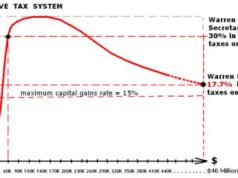
Introduction
Tax laws and acts can be difficult to navigate for many people, regardless of their profession or experience. Understanding the various tax acts is crucial for individuals and businesses to keep an accurate record of income and expenses while staying compliant with local and federal tax laws. Here, we provide a list of essential tax acts that you should be aware of.
1. Tax Cuts and Jobs Act (TCJA)
The Tax Cuts and Jobs Act was passed in 2017 and is considered the most substantial tax reform law in decades. The act made significant changes to tax rates, standard deductions, and itemized deductions for both individuals and businesses. It also included the largest corporate tax cut in US history.
2. Affordable Care Act
Also known as Obamacare, the Affordable Care Act requires individuals to have health insurance or pay a penalty. Additionally, businesses with 50 or more employees must offer affordable health insurance options to their employees. The act also includes tax credits for insurance premiums for low and middle-income individuals.
3. Taxpayer First Act
The Taxpayer First Act was passed in 2019 to improve accountability and transparency within the Internal Revenue Service (IRS). The act aims to modernize the IRS’s technology, protect taxpayer rights, and increase transparency in tax return audits.
4. Foreign Account Tax Compliance Act (FATCA)
The Foreign Account Tax Compliance Act, passed in 2010, requires US citizens and residents who hold foreign financial assets with a total value of more than $50,000 to report their assets to the IRS. Financial institutions worldwide are also required to disclose information about US account holders to the IRS.
5. Tax Increase Prevention and Reconciliation Act (TIPRA)
The Tax Increase Prevention and Reconciliation Act was passed in 2005, extending several tax provisions such as the alternative minimum tax patch and the research and development tax credit. It also introduced new tax provisions such as the reduced tax rates on capital gains and dividends.
Conclusion
Understanding the various tax acts can be critical in managing finances and maintaining compliance with tax laws. The Tax Cuts and Jobs Act, Affordable Care Act, Taxpayer First Act, Foreign Account Tax Compliance Act, and Tax Increase Prevention and Reconciliation Act are some of the essential tax acts that individuals and businesses should be aware of and follow to avoid any legal consequences. Keep up to date with these acts to ensure that your tax-related activities are within the bounds of the law.
Understanding Taxes
Taxes are classified as payments required by individual citizens that may be incurred in tandem with financial, commercial, employment, and consumer activity. Within a society that required its residents and citizens to satisfy required tax payments, taxes may be fulfilled through a variety of facilities, in addition to variety of means of payment.
This being said, taxes can range in their collection process, procedure of payment, and applicable rates; while certain taxes may be required by the entire populace, other Taxes may be required by a specific group of individuals.
What is a Tax Act?
Within the legal realm of taxation, various tax-based legislative statutes – also known as a ‘tax act’ have been instated; a tax act may vary with regard to any or all applicable locations, countries, nations, districts, and municipality.
Within areas in which sovereign, locational entities exist, such as the United States of America, individual sovereign entities – in the form of individual states or regions – may be permitted to not only institute, but regulate an individual tax act. Conversely, a national tax act may be passed, which may result in the required adherence to implied legislation with regard to a country or nation its entirety; the following are some examples of influential tax acts that have been passed:
Federal Unemployment Tax Act (1939)
In conjunction with economic turmoil taking place within the Great Depression, President Franklin Delano Roosevelt formed federal committees providing financial support and restitution with regard to individuals unable to find employment; refusal in lieu of inability to work would deem a prospective recipient to be ineligible.
Tax Relief Act (1997)
The passing of this tax act allowed for the number of individuals permitted to invest in their respective retirement accounts – standard individual retirement accounts are commonly referred to as ‘IRAs’; as a result, the notion of a Roth IRA account were created that lessen applicable estate taxes with regard to larger initial investments.
Hope Credit Tax Act (1997)
The passing of this tax act may allow eligible students enrolled in collegiate degree programs to receive tax credits with regard to the financing of their respective education; this tax act allows for the tax relief to be undertaken by a spouse, parent, or additional dependent.
An Additional Meaning of TaxACT
TaxACT may also refer to the tax preparation service that shares the same name.TaxACT is electronic tax filing software owned by the Intuit Company that may be facilitated by its users in order to prepare their respective income tax reports:
TaxACT operates with regard to a multitude of functions, ranging from the preparation of income tax withholding reports to calculations of individual tax returns;Tax ACT is fashioned as a ‘field-input’ program, in which users are prompted to input applicable figures and information in order to finalize the calculation of their respective income tax reports
E-File is an online-based tax preparation system that operates through the usage of the Internet, which does not require the user to purchase any additional software; TaxACT offers the opportunity for individuals to utilize online-based tax filing methodology.



























